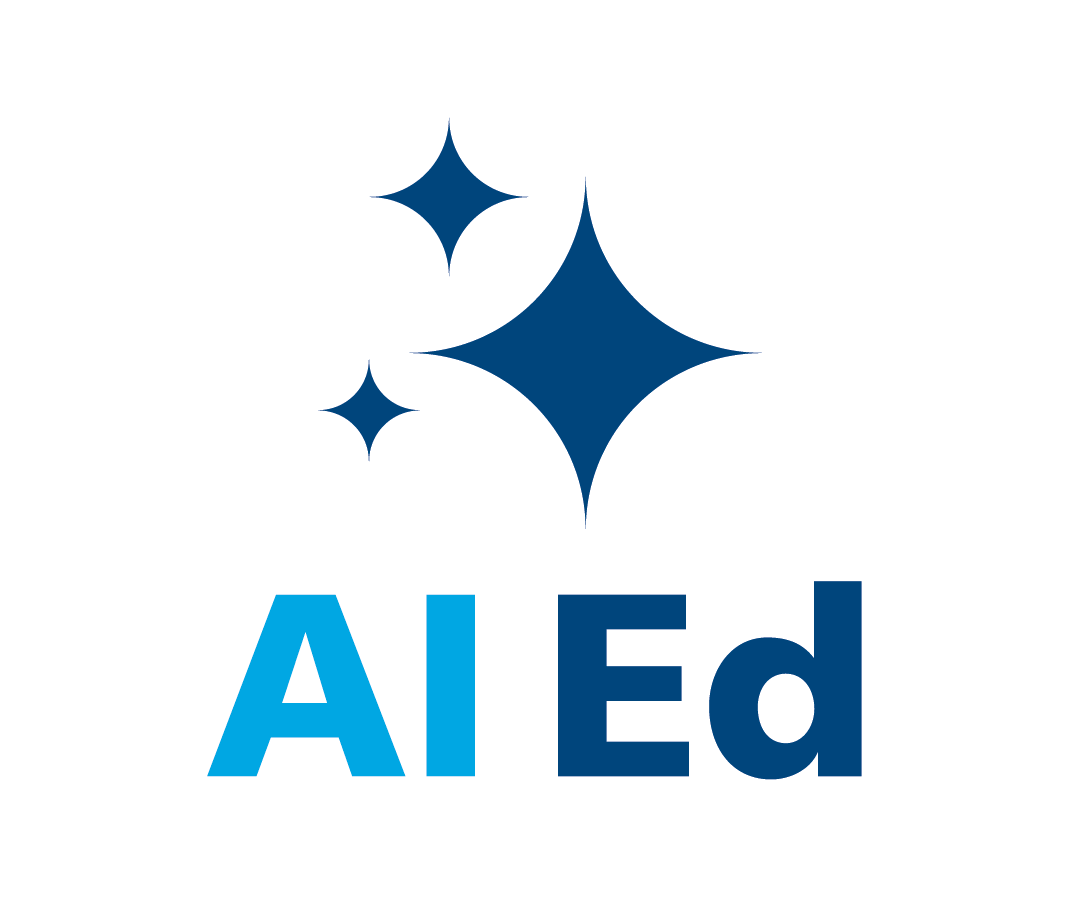Best AI tools for K-12 schools
Equip your school or district to make the most of AI—responsibly and effectively. We help teams understand core concepts, explore high-impact tools, work collaboratively, and evaluate their impact across instruction, assessment, and special education. Empower your teams to drive innovation, build shared understanding, and develop practical AI strategies that boost teacher efficacy and student success.
Where are you on your professional learning journey?
Your school or district is ready to start building foundational knowledge related to AI in K-12 education. Multi-Day Services
Your school or district is confident in integrating AI into daily instruction and is looking to deepen or sustain your AI expertise.
"This training opened up a new world of opportunities to help us truly reach our students!"
Your Goal
Building Your Skills
One‑Day Services
AI Basics for Teaching and Learning
As AI tools become more prevalent in K-12 classrooms and educational systems, it is critical for educators and leaders to understand both the opportunities and the challenges they present. Gain a shared foundation of knowledge about AI within a school or district setting. Explore key terms, concepts, and examples of AI in education, gaining clarity on what AI is—and what it is not.
Integrating AI Tools in the Classroom
Explore how to use AI in the classroom to streamline planning, differentiate instruction, generate standards-aligned lesson plans, and provide personalized feedback—helping teachers work more efficiently while enhancing student learning.
AI in Special Education
Gain a deeper understanding of how AI can support IEP implementation through customized accommodations and data collection for students with special needs. Use AI tools for K-12 teachers to create modifications to classroom procedures, assessments, assignments, and daily lesson plans that ensure all students receive the support they need.
Empowering PLCs with AI
Learn how to leverage the best AI tools for K-12 schools that can make all the difference in your PLC at Work® process. Rooted in the three big ideas of the PLC process—a focus on learning, a collaborative culture, and a results orientation—this impactful professional learning service emphasizes how AI can support teams in addressing the four critical questions that drive high-functioning PLCs.
Responsible AI Use in Education
Ensure responsible AI in education through training on ethical use of AI in schools, including algorithmic bias, student data privacy, academic integrity, and equity-centered implementation strategies. Engage in hands-on activities, case studies, and collaborative discussions to build foundational knowledge and leave with actionable strategies for ensuring the safe and thoughtful integration of AI tools into teaching and learning environments.
Developing AI Policies and Guidelines
Discover practical AI governance strategies that address AI and student data privacy, education technology with AI, and instructional integrity. Practical training will be provided on how to vet AI tools for both staff and students, including examples and templates for immediate application.
AI’s Role In Assessment and Grading
Use AI tools for grading and feedback and improve the quality and timeliness of formative assessment. Examine real-world classroom examples, evaluate current tools, and begin crafting a clear implementation plan aligned with instructional priorities.
Using AI to Make Differentiation Doable
Using ChatGPT in K12 education has the potential to transform how teachers plan and deliver differentiated learning experiences to students. This one-day workshop guides your team through the essential principles of differentiation and demonstrates how AI can streamline scaffolding, preteaching, and extension. Attendees will leave with a comprehensive toolkit of AI-powered strategies to meet diverse student needs, bridge learning gaps, and accelerate efforts to reinforce or extend learning.
Your Goal
Sustaining Your Skills
Multi‑Day Services
Integrating AI Tools in the Classroom
Receive a practical, hands-on introduction using the best AI tools for K-12 schools that enhance instructional planning, assessment, and feedback. Learn how to generate lesson plans, assessments, rubrics, and feedback tailored to diverse learners. Through guided exploration and collaborative activities, teams will learn how to align AI outputs with curriculum goals, differentiate instruction, and personalize student support.
AI in Special Education
Learn how to efficiently use AI to support IEP implementation and customize learning for students with special needs. Experience how artificial intelligence in K-12 education can drive interactive exercises, such as gamified learning and virtual simulations, which can help sustain attention and improve focus for all students.
Empowering PLCs with AI
In this hands-on experience, teams will build a strong conceptual foundation for using AI to support their collaborative work. After developing a shared understanding of AI’s potential, teams will move into active application—collaboratively using AI to create aligned instructional artifacts and build repeatable workflows that support ongoing PLC meetings and cycles of continuous improvement.
Responsible AI Use in Education
Learn how to apply the ethical use of AI in schools through case studies and collaborative exercises. Learn how to address critical topics such as algorithmic bias, student data privacy, academic integrity, and AI governance—ensuring that equity, safety, and ethical decision making are at the forefront of any AI integration plan.
Developing AI Policies and Guidelines in Education
Provide your teams with an exploration of responsible AI governance, build AI literacy for teachers and leaders, and equip educators with the tools, knowledge, and frameworks needed to develop comprehensive AI policies tailored to their school or district. Participants will explore real-world case studies, examine evolving legal and ethical considerations, and receive guided practice in policy writing.
AI’s Role In Assessment and Grading
Get equipped with the tools, confidence, and strategies needed to fully incorporate artificial intelligence into your assessment and grading systems. Participants will move beyond theory to actively design and refine AI-supported assessments, experiment with a variety of tools, and collaborate with peers to align their efforts with standards, learning targets, and schoolwide goals.


